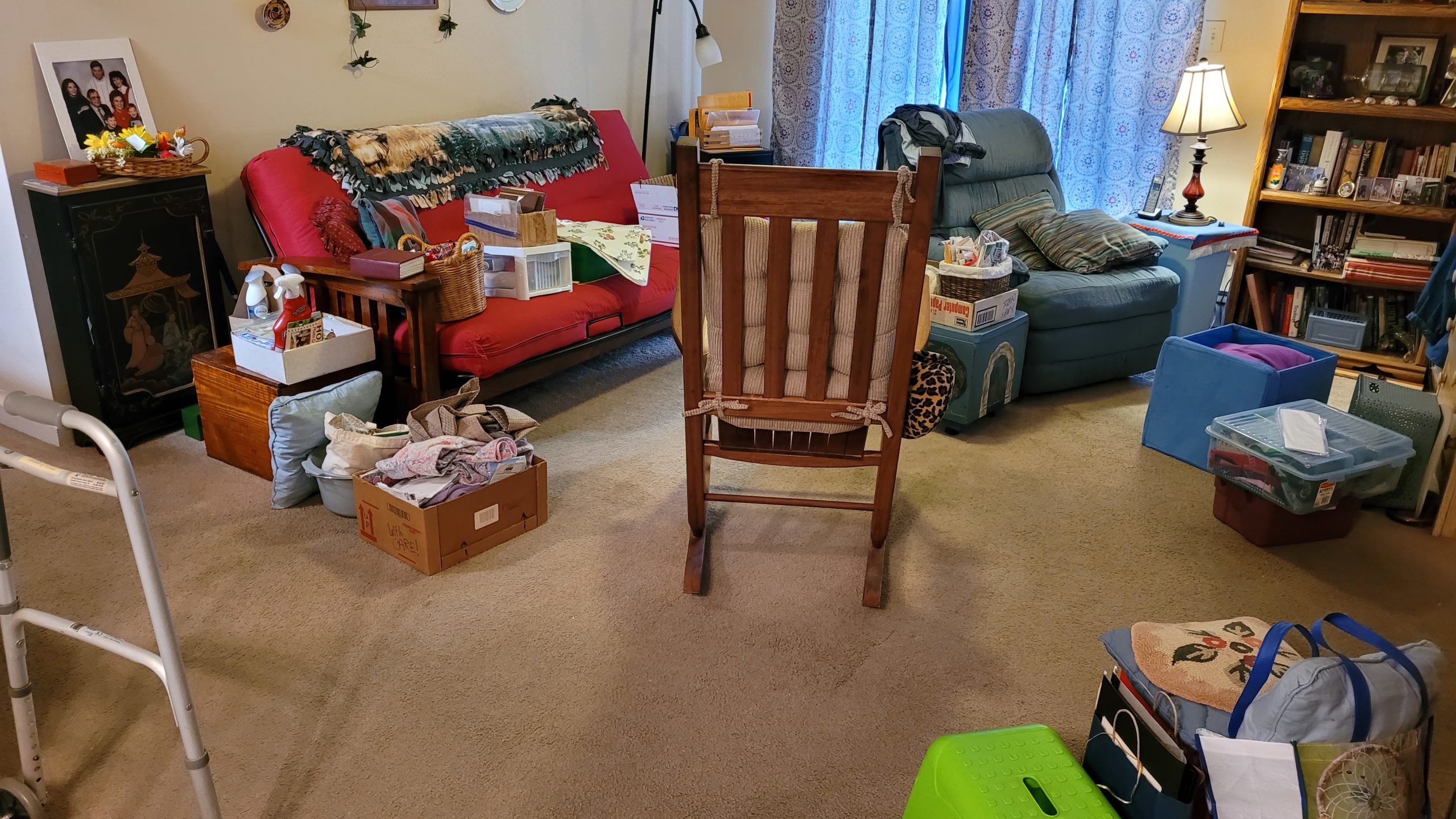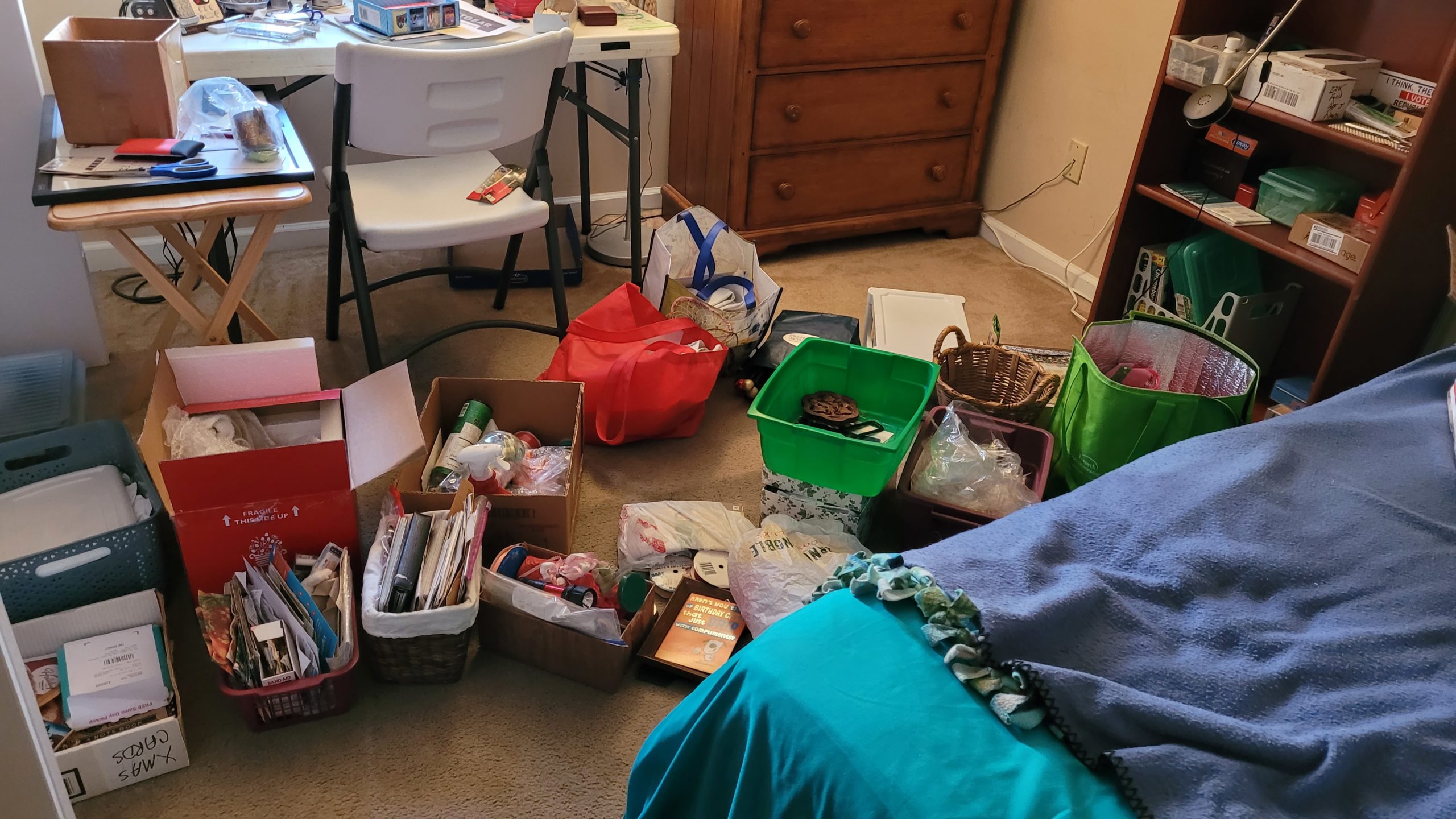 I like to know where things are. People often comment that my house is clean. It’s not. I rarely clean. But I put things where they belong. When I’m overwhelmed, overworked, frustrated, or anxious, it helps me to have an organized space. Clutter makes it hard to focus and it makes me feel more stressed. I cannot be creative in the midst of clutter.
I like to know where things are. People often comment that my house is clean. It’s not. I rarely clean. But I put things where they belong. When I’m overwhelmed, overworked, frustrated, or anxious, it helps me to have an organized space. Clutter makes it hard to focus and it makes me feel more stressed. I cannot be creative in the midst of clutter.
Right now, my life is cluttered. I feel stressed. And I cannot do anything to straighten it out.
Nobody prepared me for one of the biggest time-consumers in caregiving for people with dementia: I have to spend a large chunk of each day finding things. And then the next day, or even a few hours later, I have to find the same things all over again.
Mom moves things around in her sleep. I write out information she wants handy in bold letters on brightly colored card stock: phone numbers, TV channels, daily calendar items. But no matter how colorful the paper, every morning when I arrive, the lists are misplaced. Every morning. The only way to keep things in their rightful place would be to staple them down. Mom is convinced someone breaks into her apartment every night and moves her stuff around.
Some missing things are not vital, but a person with dementia can become obsessed with finding them. I’ve had to look under every piece of furniture, move every box, get down on my hands and knees, and up on ladders searching for a little girl’s bracelet that Mom wants to give to a friend at church. I’ve been doing this since August. She wants to give it to her for Christmas.
Some of the missing items are extremely important, like glasses. I’m on to some of my mother’s favorite hiding places: inside a cooler, wrapped in a scarf in her drawer, on the floor beside her bed. But naturally, the days we have a doctor’s appointment, the glasses are nowhere to be found in any of those places.
My Dad’s situation is much worse, because it’s not just him misplacing things. Any of the other residents can wander into his room and move things, not knowing what they’re doing. I have had to enlist all the nurses in the hunt for his glasses. One week we found three pairs in Dad’s shoe. Only one pair belonged to him.
As the nurses and I roam the halls looking for my Dad’s missing stuff, one of the nurses will see Harry wearing Clarence’s shirt, or Maggie covered in Ruby’s blanket. I’ve learned that the more distinctive their belongings look, the easier they are to find. 🙂
Everything is labelled, so whatever we don’t find that day will usually turn up by the next week. But by then, other things are missing. The room I straightened the last visit is messed up again. As usual, the new TV we bought him doesn’t work since the remote is missing—again. Argh!
It never ends.
I’ve had to accept a hard truth. Life in a memory care home can never be neat and orderly. It just is impossible.
I have to let it go. One of the hardest things for me in this journey is learning to live with messy.
And then it hits me. My life is messy. Far from perfect. There are always things left undone in my life; I never reach the bottom of my To-Do list. That pseudo-organization I’m so proud of? It’s a façade. If you just blow on it, it will fall apart.
I don’t like it, but I’ve learned to accept messy for me. Now I have to accept messy for my parents. And accept that I can’t fix it for them. I can’t even fix it for me.
Here’s the good thing: God gives grace for the messy. His grace, always sufficient, enables us to muddle through our imperfect lives. He doesn’t demand that everything be put away neatly where it belongs. He accepts us just as we are, messiness and all.